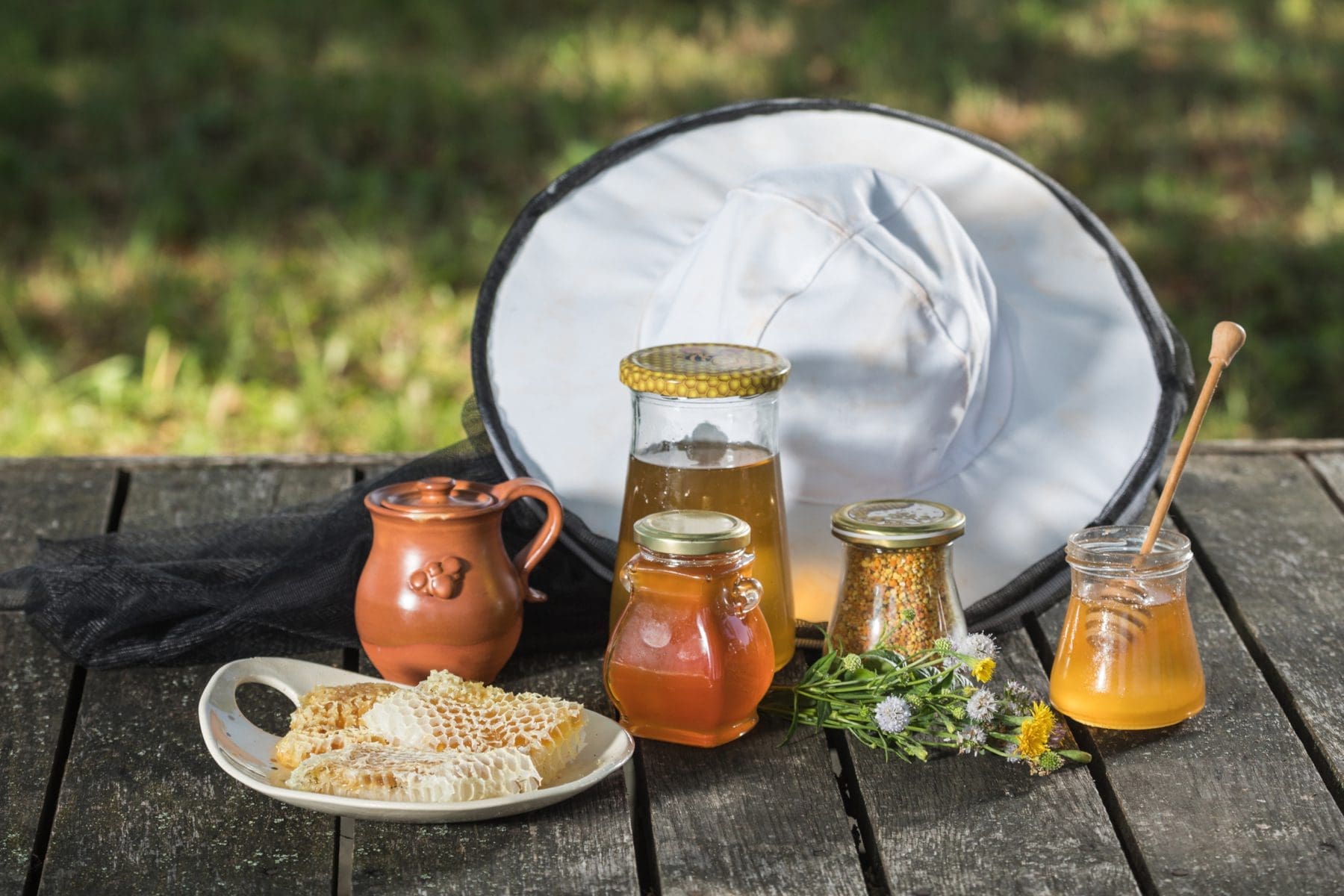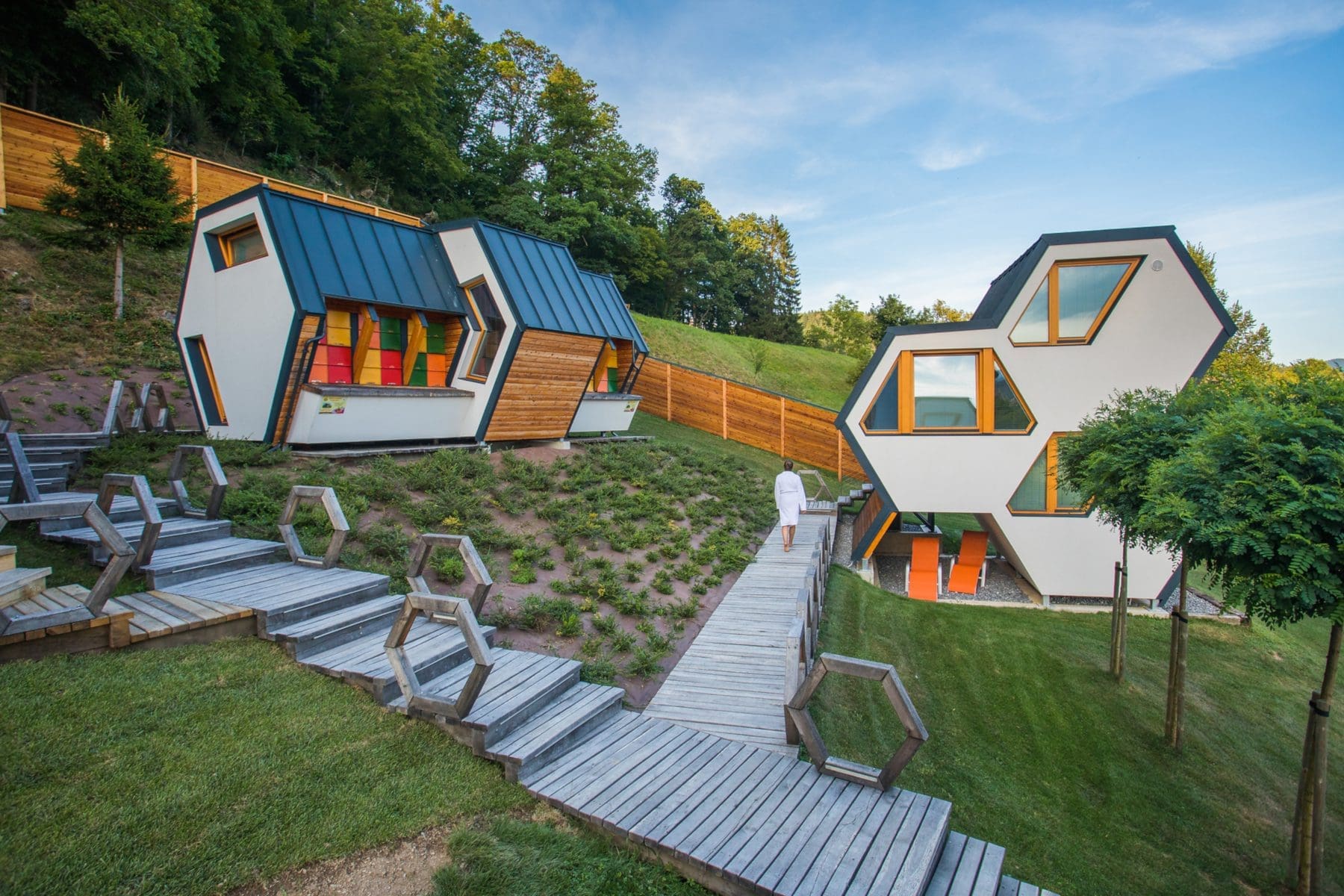Taking place annually on 20 May, World Bee Day is a celebration of bees, pollination and the importance of beekeeping. Recognised as an awareness day by the United Nations, World Bee Day originated in Slovenia and occurs on the birthday of Anton Janša, a notable Slovenian bee expert who was an important educator of beekeeping during the 18th century.
This year’s World Bee Day theme will celebrate youth and beekeeping, highlighting the importance of apiculture and raising awareness amongst the younger generation of future beekeepers. Beekeeping has long been recognised and appreciated in Slovenia and there are numerous ways that visitors can immerse themselves in the tradition:
Learn about beekeeping with a guided tour

One of the best ways to learn about Slovenia’s beekeeping culture is to take a guided tour. ApiRoutes offers numerous beekeeping tours in locations around Slovenia where travellers can meet a beekeeper, learn about their role, see different hives and taste some local honey products. The Lake Bled excursion includes a visit to a beekeeping centre, which highlights both traditional and contemporary approaches to beekeeping, whilst the Styria region tour includes a visit to a herbal and beekeeping farm as well as wine tasting in Jeruzalem.
Taste authentic Slovenian honey
Honey bees in the Karst and Kočevje forests have been protected, meaning that it’s prohibited to breed other races of bees so the high quality of honey can always be guaranteed. Karst honey has a full and distinctive flavour, with touches of acacia, flower, linden, spruce, forest, fir and chestnut from the surrounding landscape, whilst a special feature of Kočevje honey is that bees’ pasture is ecologically pristine, which allows for the honey to be world-class. Visitors to Slovenia can pick up honey in numerous shops – honey from Karst and Kočevje bees is recognised by its unique protection label – or head to Carniolan Bee House in Višnja Gora, a bee-themed attraction which has a café that serves tasty, honey flavoured treats. There are also numerous cafes in Slovenia that sell traditional honey biscuits, freshly baked every day.
Stay in a honeycomb hotel

Nestled in the Savinja Valley, Beeland Skok Mozirje consists of honeycomb shaped apartments kitted out with modern amenities, including state-of-the-art Jacuzzis and Finnish saunas. Relaxation is the core value of Beeland and guests can indulge in a honey massage at the wellness centre, where the honey used acts as a scrub to remove dead skin cells, take a dip in the outdoor pool, or enjoy a homecooked meal at Restaurant Gaj. Beyond the hotel in nearby Slovenj Gradec, travellers can head to the Medeni raj Museum and Gallery where they can learn about how honey confectionary and gingerbread are made.
See painted beehives at the Museum of Apiculture
The tradition of painting beehives has been carried out by Slovenians since the end of the 18th century. In Radovljica, the Museum of Apiculture has a vast collection of decorated wooden panels on display. Older beehives have motifs with religious depictions – the oldest in the whole collection dates back to 1758 and shows the Virgin Mary – but more recent designs reflect everyday life and historical moments in time. In addition to beehives, the museum has numerous exhibitions about beekeeping over the years as well as collections of tools and equipment used by beekeepers in Slovenia.
For more information about Slovenia, visit www.slovenia.info



